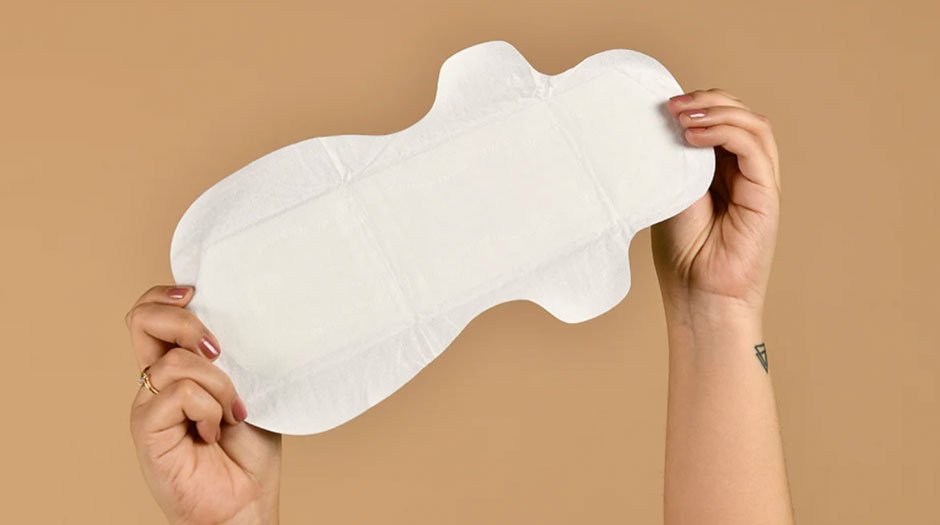In recent years, the conversation around menstrual health and sustainability has gained significant traction. As individuals become more aware of the environmental impact of their daily choices, they are increasingly seeking eco-friendly alternatives in all aspects of their lives, including menstrual care products.
Among these alternatives, organic pads have emerged as a sustainable solution that not only promotes personal well-being but also contributes to a healthier planet. In this blog post, we delve into the reasons why organic pads are gaining popularity as a sustainable choice for menstruators worldwide.
The Environmental Impact of Menstrual Products
To understand the significance of organic pads, it’s essential to first examine the environmental footprint of conventional menstrual products. Traditional pads and tampons are typically made from a combination of non-biodegradable materials, such as plastic, synthetic fibers, and bleached cotton. These materials not only take centuries to decompose but also release harmful chemicals into the environment during production and disposal.
Moreover, the manufacturing process of conventional menstrual products involves the use of chemicals and pesticides, which can contaminate waterways and harm ecosystems. Additionally, the packaging of these products often contributes to plastic waste, further exacerbating environmental concerns.
The Benefits of Organic Pads
Organic pads offer a sustainable alternative to conventional menstrual products, addressing many of the environmental and health-related issues associated with mainstream options. Here are some key benefits of choosing organic pads:
Environmentally Friendly Materials
Organic pads are typically made from natural and biodegradable materials, such as organic cotton, bamboo, and plant-based fibers. These materials are free from harmful chemicals and pesticides, making them safer for both the environment and the wearer. By opting for organic pads, individuals can significantly reduce their carbon footprint and minimize their impact on the planet.
Biodegradability
Unlike conventional pads, which contain plastic and synthetic components that persist in the environment for centuries, organic pads are biodegradable. After disposal, organic pads break down naturally over time, returning to the earth without leaving behind harmful residues or pollutants. This biodegradability not only reduces waste accumulation in landfills but also helps protect ecosystems and wildlife.
Health Benefits
In addition to being environmentally friendly, organic pads offer several health benefits for menstruators. Since they are made from natural materials without the use of chemicals or synthetic additives, organic pads are less likely to cause irritation, allergic reactions, or other adverse effects. This makes them a safer and more comfortable option for individuals with sensitive skin or allergies.
Ethical Production Practices
Many manufacturers of organic pads prioritize ethical and sustainable production practices, including fair labor standards and environmentally responsible sourcing. By supporting these brands, consumers can contribute to positive social and environmental impacts, empowering workers and promoting sustainable agriculture.
Reduced Plastic Waste
One of the most significant advantages of organic pads is their contribution to reducing plastic waste. Unlike conventional pads, which often contain plastic backings, wrappers, and applicators, organic pads are typically plastic-free or made with minimal plastic components. By choosing organic pads, individuals can help combat the global plastic pollution crisis and support a more circular economy.
Overcoming Challenges and Misconceptions
Despite the numerous benefits of organic pads, some challenges and misconceptions persist. One common concern is the perceived costliness of organic menstrual products compared to their conventional counterparts. While organic pads may have a slightly higher upfront cost, their long-term benefits outweigh the initial investment. Additionally, the growing demand for organic menstrual products is driving competition in the market, leading to more affordable options for consumers.
Another misconception is that organic pads are less effective or absorbent than conventional pads. However, many organic pad brands prioritize performance and innovation, ensuring that their products offer the same level of comfort and protection as mainstream options. Furthermore, organic pads undergo rigorous testing and certification processes to guarantee their quality and safety.
Embracing Sustainability in Menstrual Health
As the global community continues to prioritize sustainability and environmental stewardship, the demand for eco-friendly menstrual products like organic pads will likely continue to grow. By choosing organic pads, individuals can make a positive impact on both their own health and the health of the planet.
From reducing plastic waste to promoting ethical production practices, organic pads offer a holistic solution to the environmental and social challenges associated with conventional menstrual products. By supporting sustainable alternatives and advocating for menstrual equity, we can create a more inclusive and environmentally conscious future for menstruators worldwide.

